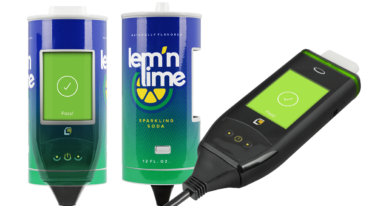
Does an Ignition Interlock Device Damage Your Car?
If you’re reading this article, then it’s likely that your state has mandated you to install an ignition interlock device (IID) in your vehicle due to a DUI or DWI. This car breathalyzer will work to prevent you from driving while under the influence of alcohol and will help keep you accountable in the eyes of the law. Still, you may be wary that installing such a device will end up damaging your car. After all, it’s going to be connected to the ignition.
While this is a reasonable concern, the point of this article is to remove that worry entirely. As with many services, when it comes to whether or not the ignition interlock device will damage your car, it’s all about who you choose to install and perform maintenance on it.
While concerns about potential interlock car damage are valid, selecting a reputable company like Low Cost Interlock ensures that experienced technicians handle the installation process with care, minimizing any risk of damage to your vehicle.
Does an Ignition Interlock Device Damage a Car?
The answer to this question is generally no. To say that it’s impossible is only false because of the installer. If the person that services the vehicle does not have a firm understanding of the car’s electronic system, it’s a possibility that damages, such as the interlock device draining the battery, can occur.
Understanding the Installation Process
When it comes to installing ignition interlock devices (IIDs) in your vehicle, it’s crucial to prioritize safety and compliance. Professional installation by certified technicians ensures that the device is seamlessly integrated into your vehicle’s systems without causing any damage. Unlike DIY installation attempts, which can lead to complications and legal repercussions, professional installation guarantees that your IID functions effectively while preserving your vehicle’s integrity.
That’s why it’s imperative that, if you’re installing an ignition interlock device, you choose a reputable company like Low Cost Interlock. Even if for peace of mind prior to installation, their support team will answer any questions you have regarding the process.
Meeting Stringent Standards
IIDs are designed to adhere to stringent standards set by organizations like the National Highway Transportation Safety Administration (NHTSA). These standards ensure that IIDs do not compromise any essential functions of your vehicle, including the stereo system, electrical system, anti-theft system, and GPS. By meeting these standards, IIDs provide reliable alcohol detection systems without impeding the vehicle’s normal operation or safety features.
Where Does the Device Go?
There’s a reason it’s called an ignition interlock device and that’s because it’s connected, as you guessed, to the ignition of your vehicle. And even then, it’s simply wired and not drilled into the ignition. This means it’s an electrical connection, not one that an installer could deem “hardware.”
There are a few critical takeaways here that will help clear the water:
- An ignition interlock device will only affect the car’s ability to start, not its ability to drive
- An ignition interlock device will be wired—not drilled or attached—to an ignition
- An ignition interlock device, although wired to the ignition, is incapable of turning the car off once it has turned on
The Rolling Retest
The IID is going to require you to retake the test once the car is moving. This is to further deter drivers that want to bypass or get around the test or to ensure they’re not committing a violation by drinking once they start driving the vehicle.
Navigating Legal Implications
Installing an IID is often a requirement following a DUI conviction, and compliance with state laws is paramount. Failure to adhere to these laws can result in serious consequences, including the suspension or revocation of your driving privileges. Additionally, attempting to tamper with or remove an IID on your own can lead to legal trouble and further jeopardize your driving record. Seeking legal advice from experienced DUI attorneys is essential for navigating the complexities of ignition interlock laws and ensuring compliance with state regulations.
A common myth is that an IID can turn off a car if a rolling retest is failed. Being that the IID is wired to the ignition, you’ll be pleased to know that this defies the science behind the design of the combustion engine. A failed rolling retest or even a problem with the wiring of the interlock device will not drain the battery or cause the engine to die while it’s on or the car is in motion.
If this were a possibility, it would negate the purpose of the device, seeing as it’s used to mitigate the dangers of the road.
Protecting Driving Privileges and Highway Safety
The ignition interlock program plays a crucial role in promoting highway safety by preventing drunk drivers from operating vehicles while under the influence of alcohol. By requiring individuals with DUI convictions to install IIDs, states aim to deter drunk driving and protect motorists and pedestrians alike. Adhering to ignition interlock requirements not only safeguards driving privileges but also promotes responsible driving behavior and contributes to overall highway safety initiatives.
Don’t Forget Regulation!
Being that an ignition interlock device is mandated by the state and enforced by federal law, the companies which produce, service, and maintain IIDs are subject to thorough vetting, harsh regulations, and years of testing.
The point to be made here is that most ignition interlock device companies would not be in business if they were providing low-quality installs that:
- Damaged the vehicle
- Put the driver at any sort of risk
- Put motoring neighbors at any sort of risk
- Rendered the device to work inefficiently
A company like Low Cost Interlock ensures their technicians are experts in a car’s electrical science, the engineering of the IID, and the science of the install itself. Every service provider is subject to hours of training, screenings, and background checks.
A Small Drawback | Remote Engine Start or Smart Start
If your car happens to have a remote engine start or a smart start, this feature will be disconnected while the IID is installed to ensure that the vehicle won’t start if you don’t pass the breathalyzer test. For obvious reasons, it would be counterintuitive to allow a person to keep a vehicle that can start remotely, seeing as the IID test and rolling retest would be automatically bypassed.
Low Cost Interlock
If you’re still worried about your car being damaged, know that each LCI service location is state licensed, insured, and certified. Their service centers work to keep up with evolving technology, constantly making changes that improve upon the process. Truth be told, all your questions can be answered in-depth by simply reaching out to them.
It’s understandable that the process of having an IID installed can be taxing, frustrating, and emotional, but it doesn’t need to be. Once the process is over, you’ll be ready to drive with your license restriction, fulfill your term’s requirements, take responsibility for your actions, and eventually remove the device and return to normal driving privileges!
Sources:
Low Cost Interlock. Ignition Interlock Installation. Retrieved from:
Ignition Interlock Help. Will an Ignition Interlock Device Damage My Car?
https://www.ignitioninterlockhelp.com/blog/will-ignition-interlock-device-damage-car/
How A Car Works. How the Ignition System Works. Retrieved from:
https://www.howacarworks.com/basics/how-the-ignition-system-works
CA.GOV. State of California, Department of Motor Vehicles. Ignition Interlock Devices. (FFDL 31). Retrieved from:


